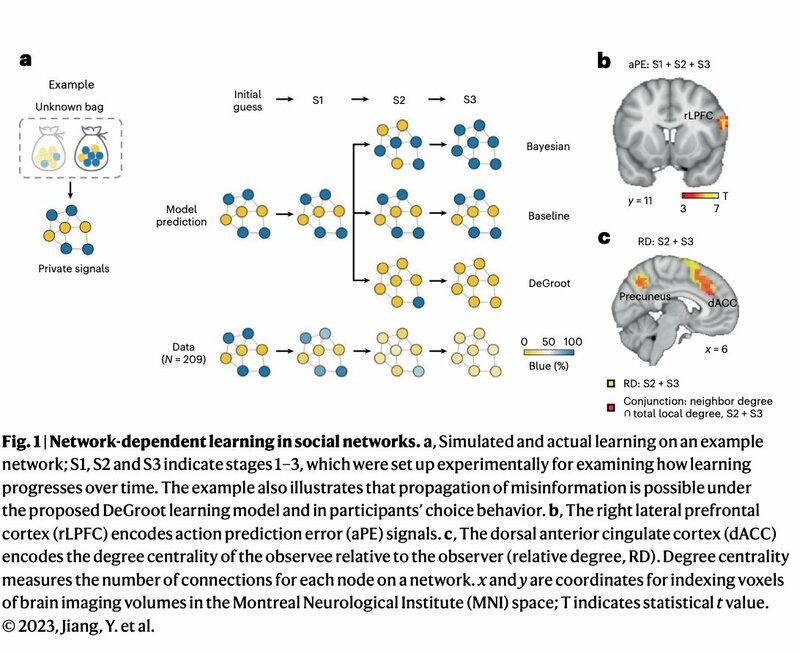Over the past decade or so, social scientists have been trying to understand how social networks can influence people's beliefs and behavior. Despite the many studies on this topic, currently very little is known about how the human brain makes decisions in networked environments, when humans share their views with one another.
Shedding some light on what happens in the brain when humans are making decisions informed by interactions with others in their social network could also help to better understand phenomena commonly observed in social groups. For example, it could help to unveil the neural underpinnings behind misinformation, the propagation of information across social groups and polarized views.
Researchers at Peking University have recently carried out a study aimed at better understanding how humans learn new things from observing the decisions of others. Their findings, published in Nature Neuroscience, pin-point a neurocomputational mechanism through which the brain filters sources of information and that could explain phenomena like biased learning and misinformation.



 Psychology
Psychology Behavioral Health
Behavioral Health Science
Science Social
Social Learning
Learning


